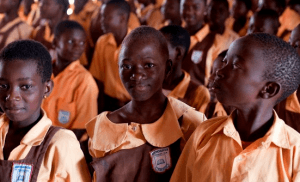Only 2% of pupils in Ghana can read – NGO
 Mr Eric Kavaarpuo, Education Officer of IBIS, an education focused non-governmental organization has expressed worry that only 2.0 per cent of pupils in primary two in Ghana could read with fluency and comprehension.
Mr Eric Kavaarpuo, Education Officer of IBIS, an education focused non-governmental organization has expressed worry that only 2.0 per cent of pupils in primary two in Ghana could read with fluency and comprehension.
He indicated that only 28.4 per cent of primary three pupils were proficient in literacy while 39 per cent were proficient in literacy at primary six, saying that, “These are contained in the Early Grading and Reading Assessment and the Early Grading in Mathematics Assessment of 2013”.
Mr Kavaarpuo who was presenting a Pre-regional Education Sector Annual Review report said there were about 13.8 per cent of pupils who were literate at primary three stressing that in mathematics, only 2.8 per cent in the Northern Region were proficient.
The meeting was organized by the Northern Network for Education Development (NNED) with support from the Net Organization for Youth Empowerment and Development (NOYED-Ghana) as part of the Tackling Education Needs Inclusively project.
The Northern Regional Education Sector Annual Review, which comes off on March 10, 2016, is under the theme: “Systemic change: a catalyst to sustainable quality education delivery”.
Mr Kavaarpuo indicated that the country had 91 per cent Net Enrollment Ratio in 2015 but astronomical figure of 300,000-800,000 children remained out of school noting that many pupils drop out of school as they progressed on the educational ladder.
He said despite the numerous social intervention programmes that have been implemented by the government, the education sector performance report of 2015 indicated that only 40 per cent of children’s school needs could be addressed through such policies.
He recommended that the government should start a review process to change the strategic educational policy of the country in line with the Sustainable Development Goals of the UN since such a move would be positive for Ghana.
“There is evidence of high school dropouts, few number of children appear to complete junior high school in the Northern Region as compared to other regions of the country…this problem is compounded by few JHS in our communities,” he stated.
Mr Kavaarpuo said the quality of students in the country keeps dwindling explaining that “core textbooks were still insufficient and textbooks such as Ghanaian Language, Religious and Moral Education were lacking in many schools”.
He expressed worry that a 71.47 per cent pupil-teacher ratio at Mamprugu Moaduri District of the Northern Region was unacceptable and blamed the situation on poor teacher rationalization redeployment initiative.
Many of the participants at the forum called for systemic change in the systems and structures of the Ghana Education Service to ensure that the country got the best out of its educational goals.
Source: GNA
